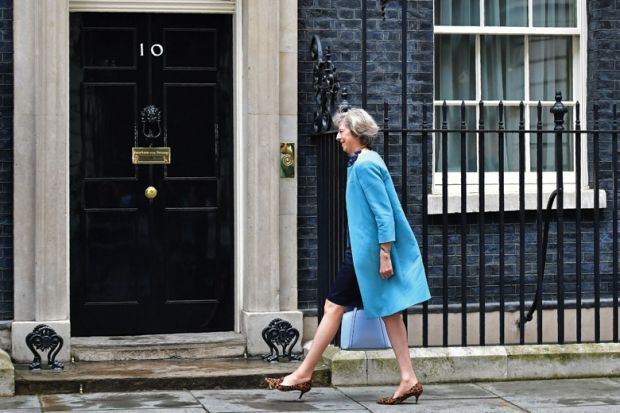The announcement of a June general election in the UK, just two years shy of the last one, has come as a surprise. Even prime minister Theresa May had previously ruled out an early election. But, over the weekend, the opinion polls suggested that the Tory lead is nearly as large as the entire Labour vote. So it is easy to understand why it eventually proved too alluring to resist.
Received wisdom says the Conservatives will win a historic victory. But elections are never totally free from risk. The hat trick of Cameron’s 2015 majority, Brexit, and Trump shows that neither the pollsters nor the commentariat have been reliable guides for predicting the future in recent years.
Moreover, some academic research confirms that it may not be a walk in the park. A detailed study of UK elections by Alistair Smith of New York University found politicians who go to the country early “experience a decline in their popular support relative to pre-announcement levels” and also “experience worse postelectoral performance”.
That is unlikely to give Number 10 sleepless nights just yet. Consider the state of the main parties. The Conservatives have patched up their differences over Brexit more effectively than Labour, while Theresa May is still in her honeymoon period. The Ukip surge is over now the party has lost its raison d’etre as well as its only MP. The official opposition, Labour, are weak even in their historic strongholds – including Scotland, where they remain unsure how to respond to the SNP.
Overall, Labour leader Jeremy Corbyn’s approach to politics reminds me of nothing so much as andouille: a French sausage made from tripe and pigs’ intestines. A minority love it and they can’t quite bring themselves to believe no one else does.
What could it all mean for higher education?
The basic rationale for the Higher Education and Research Bill remains. A new legal framework is necessary to bring the regulation of higher education in line with the funding arrangements introduced in 2012. That remains true, but the forthcoming general election nonetheless represents the single biggest threat to the bill since it was first introduced.
When an election is called, there are discussions between the government and opposition whips on what can be passed quickly and what needs to be junked. I still suspect the bill will pass in some form, but its more controversial aspects, including some of the features of the teaching excellence framework, could turn to dust – at least for now.
Search our database for the latest global university jobs
One group that may welcome the early election is recent school-leavers, including many students, as they will get to vote earlier than they expected. Yet it is far from clear who they will support. They may not dislike the Lib Dems as much as their older siblings once did: after all, they had only just left primary school when Nick Clegg discarded his promises to get into bed with the Conservatives.
Perhaps they will be enticed by John McDonnell’s desire to abolish tuition fees and reintroduce maintenance grants. But he has yet to explain how to pay the £10 billion a year cost, and there is not much time left to find the money tree. Minor parties like the Greens have sometimes picked up support in student areas, but many students will have returned home by the time the election happens, diluting their ability to vote as a block.
In terms of the main campaign themes, higher education generally takes a backseat and makes little difference to the outcome. Labour reintroduced tuition fees in 1998 and won the next election. They then legislated to triple tuition fees and won again in 2005. The Conservative-led coalition tripled tuition fees once more and the Conservatives went on to win the next election. So it would be ludicrous to think that higher education could play a bigger role in the 2017 Brexit election than it has in recent past ones.
Any student or staff member who wants to influence the result will have more impact if they campaign on other issues.
Nonetheless, come election day, the result will really matter to higher education. It will not only determine the UK’s relationship with its European neighbours but also the degree to which our borders remain open, the way that universities are funded and the future of research, innovation and industrial strategy.
Nick Hillman is director of the Higher Education Policy Institute.
Register to continue
Why register?
- Registration is free and only takes a moment
- Once registered, you can read 3 articles a month
- Sign up for our newsletter
Subscribe
Or subscribe for unlimited access to:
- Unlimited access to news, views, insights & reviews
- Digital editions
- Digital access to THE’s university and college rankings analysis
Already registered or a current subscriber?







